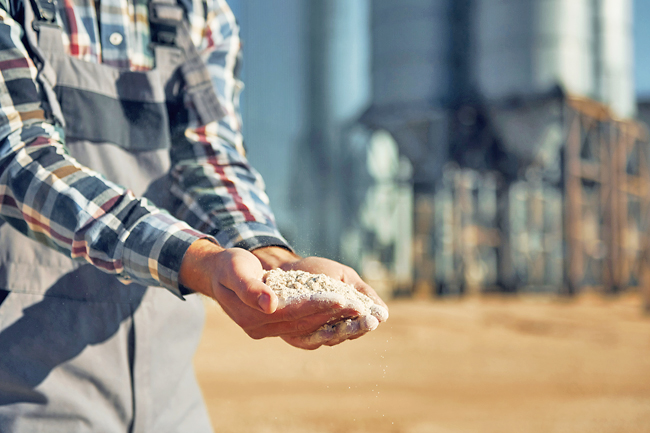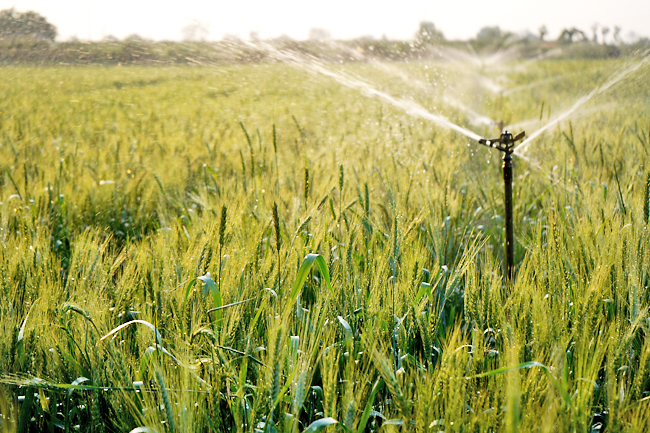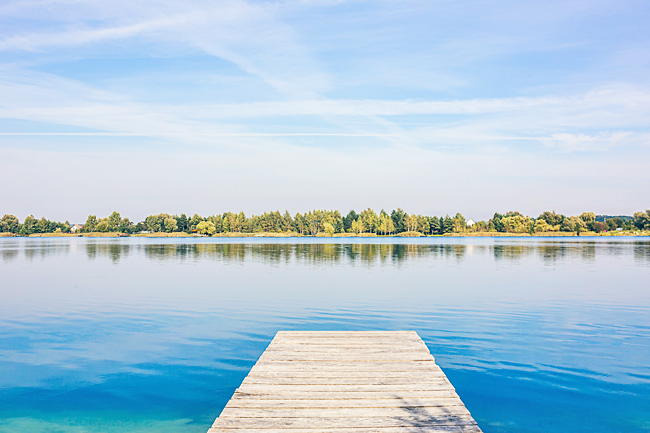THE WASHINGTON POST – Human activities are making the globe saltier, specifically in our soils, freshwater and air, according to a study released on Tuesday in the journal Nature Reviews Earth & Environment.
The excess salt has already caused serious issues in freshwater supplies in recent decades.
Saltier water led to brown tap water for months in Montgomery, Maryland. It also played a part in creating the toxic lead-laden water in Flint, Michigan.
Salt pollution isn’t some flashy demise to our existence – like, say, a meteor hitting Earth – but the issue is gravely overlooked and is a “sleeping giant”, said Sujay Kaushal, lead author of the study. He said it might be the “most boring but contemporary problem that we have”.
Most people think of salt as the white specks we put in our food or the salt in oceans, chemically known as sodium chloride (NaCl). That sodium salt can be also found in our detergents, household products and more, but there are many different salts, including calcium, magnesium and other ions used in additional products – and they’re all increasing in places where they don’t normally occur.
Over the past 50 years, salt ions have increased in streams and rivers as people have begun using and producing more salts, the study found. Across the globe, the team found that about 2.5 billion acres of soil around the world – an area about the size of the United States (US) – have also become saltier. Salt lakes are also drying up and sending saline dust into the air.



“We use water for everything from growing crops to drinking to industrial processes to heating and cooling,” said Kaushal, a geologist at the University of Maryland. “But when you have salt in the water, it affects all of those things… and it’s increasing.”
Increased salt concentrations could become “an existential threat” to our freshwater supplies, the study authors said.
Salt is a natural and necessary component of Earth. The compound is brought to the surface slowly over long geological time scales, through natural processes such as weathering of sedimentary rocks. When exposed at the surface, the salt can mix with water, be transported into the water or go into the air.
Living organisms, from plants to people, take up small portions to help regulate our daily functions. Excess salt hitches a ride with water molecules, entering groundwater, soils and the oceans.
But human activities have altered this normal salt cycle in recent decades, the team found. Agriculture, mining, construction, water and road treatment and additional industrial activities are increasing the amount of salt in our ground, freshwater systems and air.
Some sources are from irrigating salty lakes, seen often in the western United States. The water evaporates and leaves the salt behind, which can enter the soil and stress out plants.
Much like a person getting parched after eating a bag of salty tortilla chips, the plants need water. Too much chloride or sodium ions can dehydrate or poison them.
But the big source of salt in the US may come as a surprise: road salt, which communities use for de-icing during the winter. From 2013 to 2017, road salt made up 44 per cent of the country’s entire salt consumption.
Road salt can contaminate freshwater streams, but it can also enter pipes that help deliver drinking water. Many of these pipes are made of metal, such as lead or copper, elements that can be harmful for the environment or people. When large quantities of road salt flood into poorly protected pipes, it can push off these metals and into the water, said Kaushal.
Imagine the influx of salt like a wave of people coming onto an already crowded metro and pushing people back even further.
That’s partly what happened years ago in Flint, Michigan, when officials switched the water source to the Flint River, which partly contained high amounts of road salt.
“They had all these lead pipes that were leading to their houses and the chloride would basically pull the lead into solution,” said Kaushal. “They didn’t add enough corrosion inhibitor, and then kids had high levels of lead in their blood.”
Some areas, including Washington, have in recent years switched out using road salt for a more unusual sounding antidote – beet juice. A beet juice brine, which contains less salt, helps lower the freezing point of ice, sticks to roads better and is better for the environment.
Before this study, scientists didn’t really know the global extent that humans were changing salt concentrations around the globe. But the “magnitude to which we have altered one of earth’s natural cycles is alarming”, said ecologist Bill Hintz, who was not involved in the research.
“We are salting the earth where it shouldn’t be salted,” said Hintz, a professor at the University of Toledo. “We are redistributing salt to places it shouldn’t be – like many of our lakes, streams, rivers, and wetlands that provide us with drinking water, recreation, and fisheries.” – Kasha Patel






